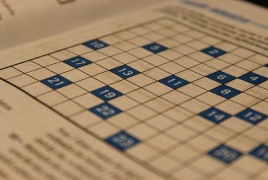
People who regularly do problem-solving puzzles like crosswords and Sudoku are more likely to retain brain performance according to new data which shows that the short-term memory of puzzlers is, on average, ‘eight-years younger’ compared to those who don't do puzzles.
In a study of more than 19,000 participants, researchers at the University of Exeter and King’s College London discovered the more regularly over-50s played puzzles such as crosswords and Sudoku, the better their brain function was likely to be.
Dr Anne Corbett, who led the research, said: “We’ve found that the more regularly people engage with puzzles such as crosswords and Sudoku, the sharper their performance is across a range of tasks assessing memory, attention and reasoning.
“The improvements are particularly clear in the speed and accuracy of their performance. In some areas the improvement was quite dramatic - on measures of problem-solving, people who regularly do these puzzles performed equivalent to an average of eight years younger compared to those who don’t."
Researchers questioned participants in the PROTECT study, the largest online study of older adults. They were asked how frequently they engage in word and number puzzles and undertook a series of cognitive tests sensitive to measuring changes in brain function.
The conclusive evidence was that the more regularly participants engaged with the puzzles, the better they performed on tasks assessing attention, reasoning and memory.
Dr James Pickett, head of research at Alzheimer’s Society who helped fund the study, said: “This research, much like research we’ve seen in the past, suggests that regularly enjoying word and number puzzles has a positive impact on thinking skills.
“Unfortunately, it doesn’t yet mean that regular games of Sudoku or jigsaw puzzles will definitely prevent dementia. It’s an important first step – and we are proud to have helped fund the study as it lays the foundations for more research into the relationship between a love of ‘puzzling’ and reducing dementia risk.
“This looks to be a well-conducted study, although it can only show that puzzling and thinking skills are linked, not that puzzling will improve thinking skills. It also didn’t look for a link with dementia risk.
However, he continued: “With nothing yet to slow or stop dementia, prevention is key. If you enjoy puzzling, then continue, although don’t worry if you don’t. There are other ways we can reduce our risk of developing dementia by taking steps towards a healthy lifestyle, eating a balanced diet, avoiding smoking and heavy drinking, and exercising regularly."

